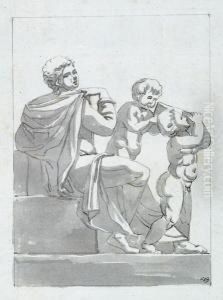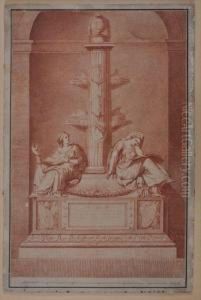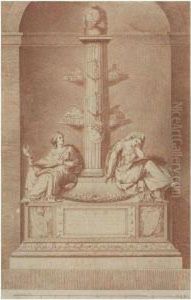Carl Frederik Stanley Paintings
Carl Frederik Stanley was a Danish-born painter who lived between the years 1741 and 1814. His life and career were marked by a blend of cultural influences, primarily from Denmark and England, where he spent a significant portion of his career. Stanley is noted for his contributions to portrait painting, a genre through which he achieved considerable acclaim during his lifetime. His work is characterized by a meticulous attention to detail and a keen ability to capture the essence and personality of his subjects.
Stanley's early life was spent in Denmark, where he developed an interest in the arts at a young age. Despite the limited resources available to him, he pursued his passion for painting with great determination. His talent did not go unnoticed, and he eventually received the opportunity to study and work in England. This move was pivotal in Stanley's development as an artist, as it exposed him to a broader artistic community and allowed him to refine his technique under the influence of prominent British artists of the time.
Throughout his career, Stanley remained actively involved in the artistic communities of both Denmark and England. He participated in numerous exhibitions and received various commissions from notable individuals, including members of the royalty and aristocracy. Stanley's portraits were highly sought after for their realism and the sense of dignity they conveyed. Beyond portraiture, he also explored other genres, though it is his portraits that have left a lasting impact on the art world.
Stanley's contribution to art was not limited to his paintings. He was also involved in the education of future artists, sharing his knowledge and skills with young painters. His legacy is reflected in the continued appreciation of his work and the influence he had on subsequent generations of artists. Carl Frederik Stanley's death in 1814 marked the end of an era, but his artworks continue to be celebrated for their beauty and historical significance, offering insights into the cultural and societal nuances of his time.


